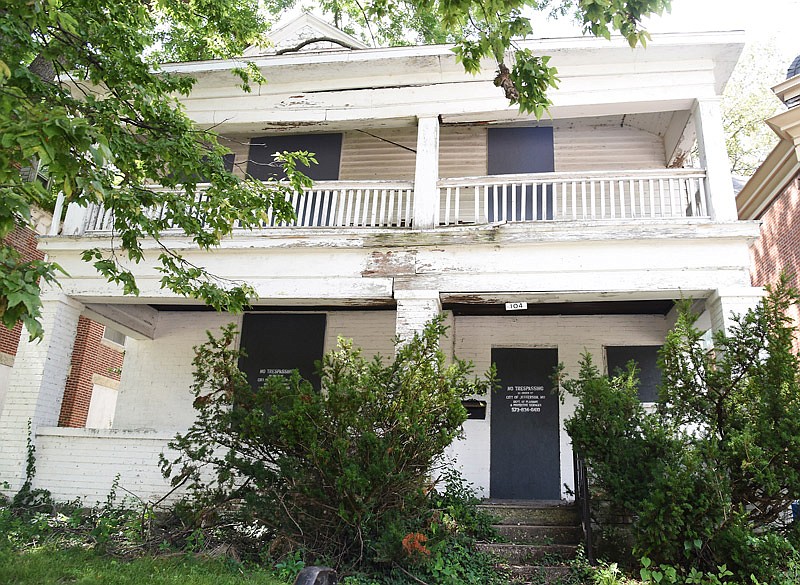Missouri's Supreme Court on Tuesday denied Barbara Buescher's request for the seven-judge court to hear her case.
That leaves Buescher with two court rulings ordering her to pay Jefferson City's $24,785 bill for abating problems on some of her properties.
That abatement included cutting weeds, vines and brush and installing plywood over doors and windows of vacant buildings Buescher owns, primarily along and near East Capitol Avenue, in 2014 and 2015.
Her attorney, Audrey Smollen, told the News Tribune Tuesday afternoon she had seen the court's order, but had no comment about it.
Smollen had asked the high court in mid-June to hear the case, contending Jefferson City doesn't have the specific legal authority to do that abatement work without first having a hearing.
"This is a very significant victory for the city," Jefferson City Mayor Carrie Tergin said Tuesday evening, "because it just shows that property owners are required to maintain their property - and when they don't, the city has every right to make every effort to remedy that, and make sure the properties are up to code."
In its May 2 ruling favoring the city over Buescher, a three-judge panel of the state's Western District appeals court determined Jefferson City had the authority to do the abatements, because the state Constitution gives all charter cities "all powers which the general assembly has authority to confer upon any city," and the city saw its actions as "the same as repair and maintenance."
However, Smollen countered in her June application for the Supreme Court to hear the case: "No (city) charter provision or ordinance specifically provides for such boarding up at all."
After an April 19, 2016, hearing, Cole County Presiding Circuit Judge Pat Joyce issued a one-page ruling Buescher was "justly indebted" to the city and owed $24,785.33.
Tergin said Tuesday the court rulings only resolve work done on Buescher's properties in 2014 and 2015 - and more work has been done since.
"The city has had to maintain her properties," the mayor explained, "at the expense of the taxpayers, and property values going down - and (it's) very unfair to the neighbors."
City Counselor Ryan Moehlman told the News Tribune the city's law department "will continue to pursue all available avenues to recover taxpayer money expended to remedy the conditions found on the subject properties" - whether Buescher's or another owner's.
After it upheld Joyce's 2016 ruling, Smollen argued the appeals court's May ruling "greatly broadens the power and authority of constitutional charter cities (and) creates conflict with other caselaw."
But, Moehlman said, the Supreme Court's decision to leave the court of appeals' opinion in place bolsters the city's actions to hold property owners accountable when they allow properties to "fall into disrepair and drag down the value and integrity of the surrounding neighborhood."
Tergin said Buescher has not been the only property owner where the city has had to take mitigating actions and other special tax bills have been issued.
Moehlman said city staff was recalculating those costs after the Supreme Court's decision, but didn't have a total cost immediately available.
"Keeping properties maintained in a safe condition is important," Tergin said, "and in the context of East Capitol Avenue, the court rulings absolutely back the City Council's and Housing Authority's decisions and actions" creating a blighted area where the government has extra tools to get improvements made.
She acknowledged some question the city's power to force property owners to repair their properties.
But, Tergin said, the court rulings "send a strong signal to property owners everywhere that there is a certain standard and code, and the city will make sure that they are maintained."

